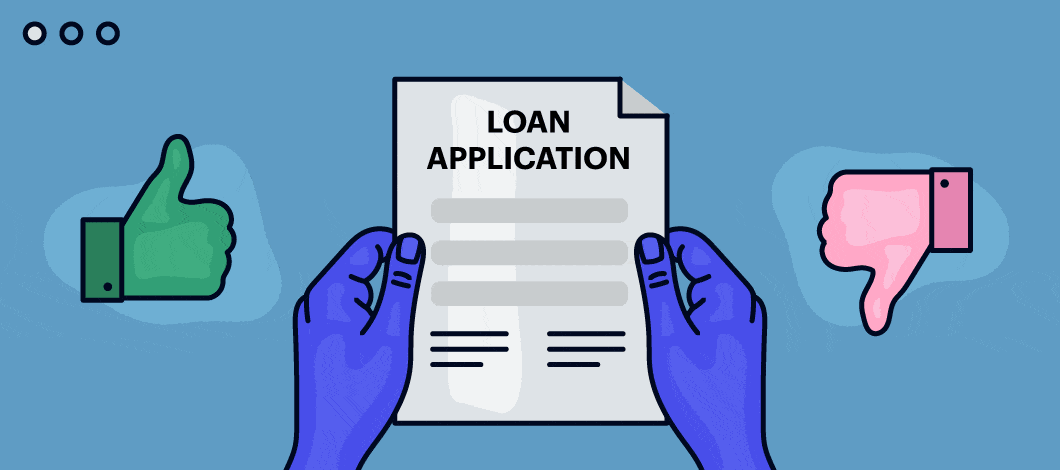When evaluating loan applications, how lenders determine the creditworthiness of a borrower is assessed by reviewing the applicant’s history of credit and debt management. Additionally, lenders consider revenue to ascertain if the borrower will be able to afford the payments required from the requested loan.
Read on to find out which specific factors lenders consider when evaluating applicants for a business loan. Plus, get tips for how to improve your creditworthiness and your ability to obtain financing.
What Does Creditworthiness Mean?
First off, let’s tackle the definition of creditworthiness. Creditworthiness refers to how lenders perceive the likelihood you’ll repay what you borrow if they decide to extend financing to you.
A creditworthy borrower is considered likely to repay what is owed. In contrast, when loan investors doubt the creditworthiness of a borrower, the borrower is considered a credit risk and deemed unlikely to repay the loan.
Lenders evaluate creditworthiness to protect themselves from the risk of losing money if a borrower defaults on a debt obligation. Financial providers stay profitable by lending money when the odds favor them being repaid with interest.

What Will Your Creditworthiness Be Based on When Applying for a Business Loan?
When determining how to assess the creditworthiness of a customer, business financing lenders consider the following:
- Personal credit score
- Business credit score
- Time in business
- Revenue
- Financial statements
- Collateral
- Type of loan
- Purpose of loan funds
Different lenders place varying weight on different creditworthiness factors depending on the type of loan.
Additionally, some of the factors lenders use to evaluate creditworthiness also impact lender decisions about setting or increasing an existing credit limit.
Let’s look at each of these variables and how they help financing providers evaluate the creditworthiness of a borrower.
Personal Credit Score
Lenders use scoring systems to measure a borrower’s creditworthiness. For example, the credit score system used by data analytics provider FICO is widely used by lenders as a measure of creditworthiness. Your personal credit score is tracked by FICO and other providers based on information submitted by creditors, such as banks and credit card providers.
Factors that enter into your personal credit score include:
- How consistently you pay bills on time, which tells lenders how responsible you are at managing debt
- How high your account balances are compared to your credit limits (credit utilization), which reflects how high your monthly debt obligations are and whether you can afford to take on additional debt
- How many different types of financing you have used (such as credit cards, bank loans, car payments and mortgage payments), which indicates your experience handling different types of debt
- How frequently you apply for new credit as opening multiple accounts in short order increases the risk of overuse and defaulting on debt
- How long you have had accounts open (e.g., credit card accounts), which reflects your long-term financial stability
Your personal credit score can carry more weight in certain situations. For example, if you’re a small business or a new business owner.
Business Credit Score
FICO and other providers also offer business credit score systems to lenders. A business credit score is calculated using considerations similar to personal credit. Factors include:
- History of on-time payments to creditors, suppliers and contractors
- Amount of debt
- Length of credit history
Business credit scoring systems adjust these considerations based on industry type and company size.
Time in Business
In addition to such third-party credit scoring systems, many lenders have internal criteria for measuring creditworthiness, such as time in business. Lenders consider the number of years you’ve been in operation as a reflection of your company’s financial stability.
Many lenders have a minimum requirement for time in business. Some types of financing may require a longer time in business than others.
Revenue
Your revenue indicates how much money you have available to repay what you owe. Lenders to businesses typically request information about how much revenue your company earns per month or per year.
For some loans, particularly larger loans or Small Business Administration (SBA) loans, lenders may require documentation to verify your revenue, such as bank statements or tax returns.
Financial Statements
Lenders consider your revenue in the context of your total financial picture. In order for you to afford a loan, your revenue needs to be sufficient to offset your monthly expense obligations plus the added expense of your loan payments.
The relationship between your income and expenses can be measured through metrics such as your debt-to-income ratio. To evaluate this, lenders may wish to see financial statements, such as your profit-and-loss statement, balance sheet and cash-flow statement.
Collateral
For some loans, lenders may want to know if you have collateral available to secure the financing agreement. Lenders may ask for collateral if you have a weak credit history or if you’re asking for a large amount of money. In other cases, certain types of loans inherently require collateral (e.g., equipment loans, invoice factoring).
Type of Loan
Which criteria lenders use to evaluate creditworthiness may depend on what type of loan you’re requesting. For instance, certain forms of financing that require collateral, such as invoice factoring, may not place as much emphasis on credit score, since your collateral secures the loan in event of default.
Purpose of Loan Funds
Lenders may also consider the purpose of a loan when evaluating the creditworthiness of the borrower. For example, if your business is thriving and you’re seeking a loan to expand your operations, a lender may perceive you as more creditworthy than a company that is seeking a refinancing loan because it’s struggling to keep up with existing debt obligations.

How Can You Improve Your Creditworthiness?
You can take a number of steps to improve how lenders perceive your creditworthiness:
- Pay all bills on time, including personal bills as well as bills for business creditors, suppliers and contractors.
- Restrict how much of your credit lines you use to 30% or less of your total limit.
- Diversify your borrowing to include multiple types of credit, such as credit cards, installment loans and mortgages.
- Avoid submitting an excessive number of credit applications over a short period of time.
- Keep accounts open even if you have a zero balance to allow your accounts to age and build the length of your credit history.
- Check with business credit score provider Dun & Bradstreet to see if your business has a DUNS number, and if not, apply for one, which will help create a credit history for your company.
- Monitor your personal and business credit reports to track your credit score.
- Dispute inaccurate items on your credit reports and monitor for any signs of identity theft.
Taking these steps can help you improve your credit score and increase your creditworthiness in the eyes of potential lenders.
-
Fast Capital 360 works with lenders throughout the U.S. to help business owners find the best financing options based on their creditworthiness. Take a few minutes to fill out our free, no-obligation prequalifying application to review your loan options.










